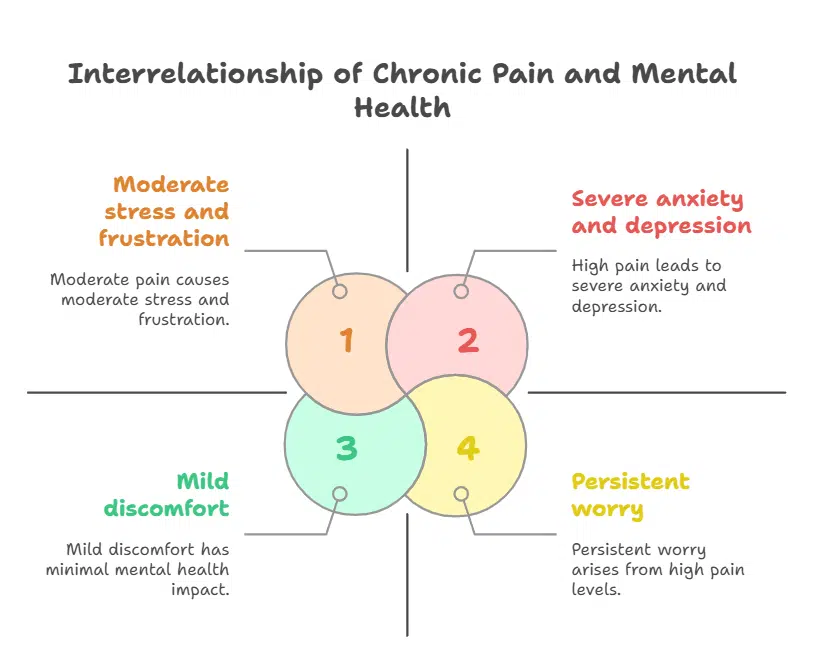Shoulder pain is a common issue that can affect anyone, regardless of age or lifestyle. Whether it’s a sharp, sudden pain or a dull, constant ache, shoulder discomfort can disrupt your day-to-day activities and affect your overall well-being. The shoulder is a complex joint with a wide range of motion, and when something goes wrong, it can impact everything from basic movements like reaching overhead to more specific tasks like driving or exercising. Understanding how shoulder pain can influence your life is the first step toward finding effective relief.
Finding Relief Through Professional Intervention
It’s important to consult a healthcare professional who can diagnose the issue and recommend a treatment plan. This may include physical therapy, medications, rest, or surgery. It’s crucial to listen to your body and avoid pushing through the pain, as doing so can lead to further damage. Incorporating strength and mobility exercises into your routine can help prevent future injuries and keep the shoulder joint healthy. In some cases, if conservative treatments fail to provide relief, total shoulder replacement surgery may be recommended to restore function and alleviate chronic pain, offering a more permanent solution to severe joint damage. Managing stress and maintaining a positive mental outlook can aid in the healing process, as mental health and physical recovery often go hand in hand.
The Daily Struggles of Shoulder Pain
Once effortless tasks, such as brushing your hair, carrying groceries, or reaching for items on high shelves, become a challenge. The constant discomfort can make it difficult to perform basic tasks at home or work. In severe cases, shoulder pain may make it impossible to lift your arm above a certain height, resulting in limitations that affect both your personal and professional life. Activities that require the use of both arms, like carrying a child or lifting heavy objects, become particularly difficult, increasing the risk of further injury if not properly addressed.
Impact on Sleep Quality
The constant ache or sharp pain can make it difficult to find a comfortable position, often causing you to toss and turn through the night. Lying on the affected side may be unbearable, leading to poor sleep quality and a lack of rest. As sleep is important for recovery and maintaining overall health, the inability to sleep properly only exacerbates the pain. This cycle of pain and poor sleep can leave you feeling exhausted during the day, reducing your ability to focus, work, and engage in other activities, affecting your productivity and mood.
Effects on Mental Health
Chronic pain, including shoulder pain, can have a profound impact on your mental health. The frustration and limitations caused by persistent pain can lead to feelings of helplessness, stress, and even depression. When you are unable to perform activities that you once enjoyed or carry out everyday tasks, it can be emotionally draining. Constant discomfort can lead to anxiety, mostly if you’re unsure when the pain will subside or if it will continue to worsen. Over time, these mental health struggles can become just as debilitating as the physical pain itself, creating a cycle that is difficult to break without addressing both aspects of your well-being.
Reduced Physical Activity and Its Consequences
The shoulder joint is integral to many forms of exercise, and pain in this area often forces people to cut back or stop altogether. This reduction in physical activity can lead to a loss of strength, endurance, and flexibility, which only further exacerbates the issue. Avoiding exercise can result in weight gain and a decline in overall fitness, which may cause other health problems like increased risk of heart disease, diabetes, or hypertension. The longer you avoid physical activity due to shoulder pain, the harder it may be to regain your strength and fitness once the pain is finally under control.
Long-Term Consequences if Left Untreated
Over time, untreated shoulder pain can cause muscle atrophy, joint stiffness, and even permanent damage to tendons, ligaments, or the rotator cuff. If the pain stems from a specific injury, like a torn muscle or ligament, failing to address the problem early can result in increased difficulty with mobility and strength, requiring more invasive treatments like surgery. Chronic shoulder pain can take a toll on your financial well-being due to medical expenses or lost wages. By addressing shoulder pain promptly and seeking appropriate treatment, you can reduce the likelihood of more serious, long-term issues.
Shoulder pain can affect nearly every aspect of your life, from physical limitations to emotional distress. Understanding how it impacts your daily activities, sleep, mental health, and work performance can help you take the necessary steps toward finding relief. Don’t let shoulder pain control your life – seek treatment early and take a proactive approach to recovery. Whether it’s through physical therapy, lifestyle changes, or professional medical care, there are effective ways to manage shoulder pain and regain your mobility and well-being.







































